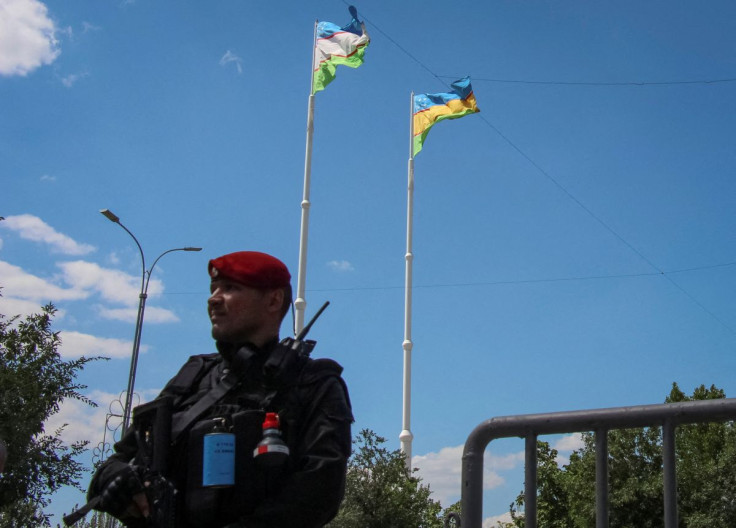Uzbekistan Lifts State Of Emergency In Karakalpakstan After Protest Deaths

Uzbekistan's President Shavkat Mirziyoyev on Wednesday signed a decree to lift a state of emergency in the autonomous republic of Karakalpakstan, where at least 18 people were killed when security forces broke up protests earlier this month.
Mirziyoyev said on his website that the emergency measures, which included a curfew, were being lifted from 5 a.m on Thursday (midnight GMT on Wednesday) because order had been restored.
He had declared a month-long state of emergency on July 2 after protests erupted over a proposal to strip the republic of its autonomous status.
The authorities said 14 protesters and four law enforcement officers were killed in the violence, which it blamed on unspecified "foreign forces". It was the deadliest unrest since 2005 in Uzbekistan, a former Soviet Central Asian state with a record of clamping down hard on dissent.
Human rights activists and opposition politicians have denied the violence was directed from abroad and rejected statements by the authorities that demonstrators were high on drugs and alcohol.
Pulat Ahunov, an Uzbek opposition politician based in Sweden, said he welcomed the lifting of the emergency but urged the authorities to go further.
"They also need to release all the demonstrators who were detained, and an ombudsman's commission needs to investigate the use of disproportionate force against demonstrators," he told Reuters.
Rights activists are demanding information from the authorities about people they say are still missing or in detention, but say their efforts have been hampered by the state of emergency and by an internet shutdown since the unrest broke out. It was not clear if web access would now be restored.
By lifting the emergency nearly two weeks before its scheduled expiry, Mirziyoyev signalled his confidence that he has weathered the biggest crisis of his six-year rule.
It prompted him to quickly drop the proposal to take away the autonomy of Karakalpakstan - a status that, at least on paper, gave it the right to secede on the basis of a referendum.
He has also twice extended a consultation period for further constitutional reforms that would see presidential terms extended from five to seven years and allow him to run for two more terms.
With an area larger than Tunisia, Karakalpakstan has a population of just 1.8 million people but makes up over a third of Uzbek territory. The republic is blighted by health and environmental problems resulting from intensive Soviet-era farming methods and the drying-up of the Aral Sea.
© Copyright Thomson Reuters 2024. All rights reserved.











